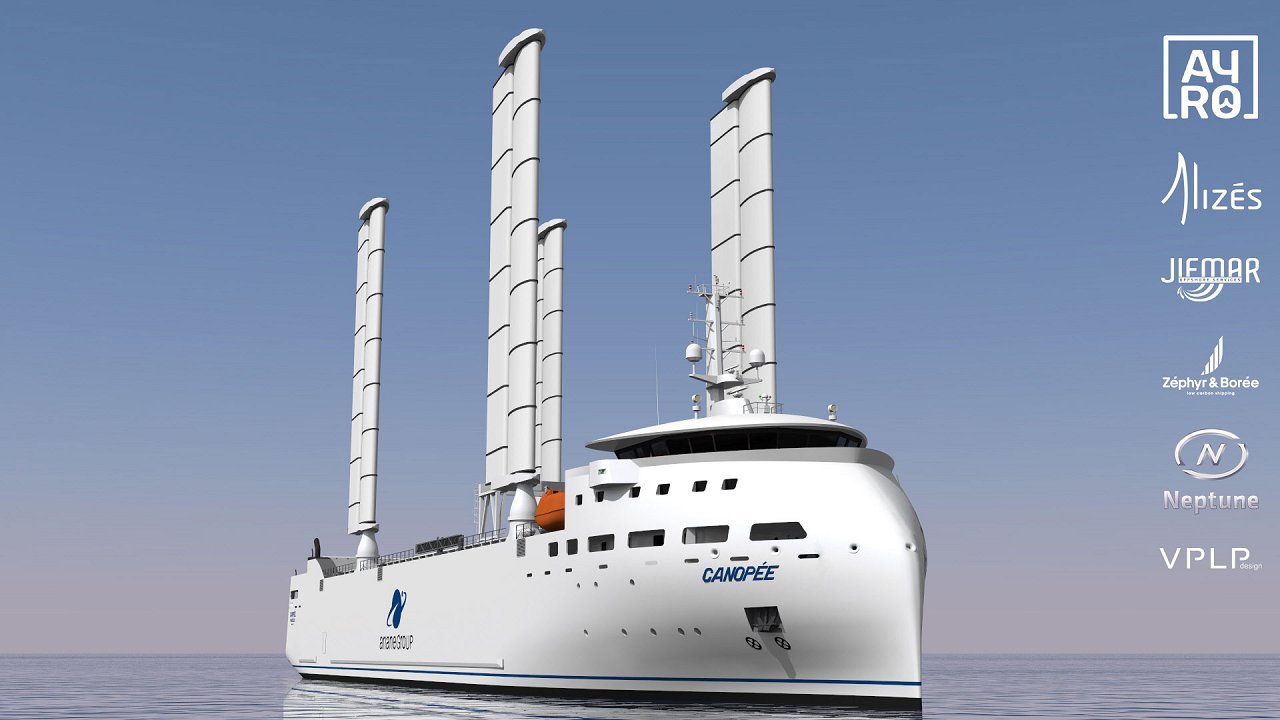SimOcean: a High-Fidelity Tool for the Optimal Design of Wind Assisted Propulsion Technology
Presentation of the problem and objective of the experiment
AYRO has created a beyond state-of-the-art wind propulsion system for maritime transport, named Oceanwings®, that enables up to 45% savings in vessels’ fuel consumption and a subsequent reduction in the carbon footprint. AYRO ’s patented Oceanwings® combines two aerodynamic elements, that can be adjusted to form an angle (camber) and that can also rotate around the main mast (angle of attack), to adjust their orientation to maximize the aerodynamic performance and, hence, the delivered thrust. The operation of Oceanwings® is completely automated, thanks to the Artificial Intelligence (AI) control software, that automatically controls furling and reefing, sets the sail camber and the angle of attack, to optimize the wind capture and maximize the aerodynamic efficiency, with a significant gain in fuel-saving at any sailing and weather condition.
The current challenge of AYRO is to further optimize the Oceanwings® technology and to extend its application to any kind of ship. A workflow for fast and reliable evaluation of the aerodynamic characteristics of different combinations of Oceanwings® to be installed on different ships is needed, to both optimize their design and also to generate large databases to feed their control AI-based software. This necessarily requires an infrastructure based on automated HPC Cloud-based infrastructure.
Short description of the experiment
A high-fidelity tool for the optimal design of Wind Assisted Propulsion Technology (WASP) on ships will be developed. The aim is to use the tool to optimize the installation of Oceanwings®, a state-of-the-art wind propulsion system for maritime transport by AYRO, on different cargo ships. An automatic workflow based on the CFD software OpenFOAM developed by DAER and Cineca will be built to simulate the aerodynamics of external flows around the cargo ship with the sails. Design of Experiments (DoE) by Response Surface Methodology (RSM) on collective data generated by the high-fidelity simulations will be employed by ToolsPole and USI. Criteria for Data Analysis will be defined to match the targets defined by AYRO.
The developed technology will enable to reach up to 45% savings in vessels’ fuel consumption and a subsequent reduction in the carbon footprint.
Organisations involved:
End User: AYRO
Domain Expert: Politecnico di Milano -DAER
HPC Provider: CINECA
Domain Expert: ToolsPole
Domain Expert: Universita’ della Svizzera Italiana
Partner CINECA is part of the NCC Italy.


